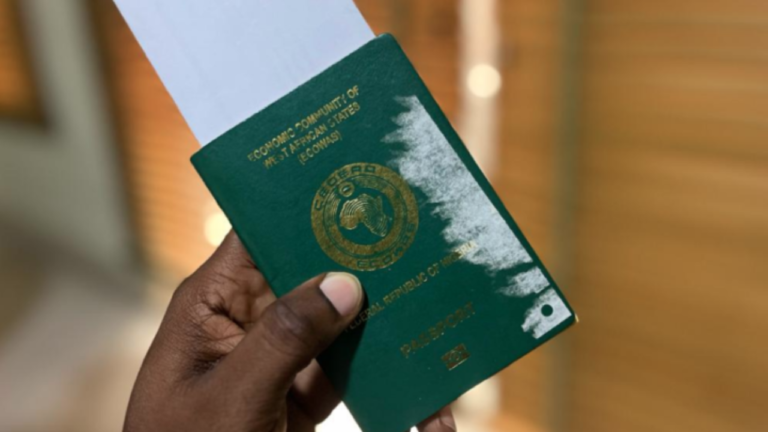Nigeria’s Minister of Interior, Olubunmi Tunji-Ojo, has reiterated plans to digitise the passport application process, aiming to process all applications online by March 1, 2025.
Speaking in an interview with Segun Awosanya, better known as Segalink, the minister said the move is part of a broader effort to enhance efficiency, curb corruption, and improve security.
“With what we have now, over 100 people can apply for passports at a time without any physical intervention or appearance or queue,” Mr Tunji-Ojo said. “We’ve been able to open up a space and relocate immigration offices to everybody’s phone; and that is what technology is all about.”
He added that Nigeria will introduce a contactless passport application service, already operational in Canada, in four states: Lagos, Abuja, Kano, and Rivers.
“In Canada, contactless is live; By February 1, by the grace of God, Europe is coming on board. And of course, by March 1, four states in Nigeria are also coming live. They’re coming on board on the contactless list because we don’t think it should be a solution only for foreigners, but also for Nigerians.
“Nigerians here should also be able to have that advantage, because part of the advantages is that it eradicates corruption. You can’t collect money from who you don’t see, so we want to reduce the human interface as much as we can.
“We believe that once we are able to reduce the human interface, then we’ll be able to get corruption out of the things that we’re doing in that particular regard. If you get to immigration headquarters today, the permanent site of the centralized personalization center is already going live directly.”
Similarly, he promised that regardless of where they are applied for, passport production in Nigeria will be printed domestically by May 1.
“By May 1, we are moving to the permanent location of a centralised production centre. It means that all Nigerian passports anywhere in the world will be printed in Nigeria,” the minister said. “This means we join the league of countries like the United States, like Britain, like Canada, and all other major countries in the world that centralise passport personalisation procedures.”
Mr Tunji-Ojo also announced the establishment of a massive 8.3-petabyte data centre to tackle the country’s longstanding data management issues. The move is said to be a significant upgrade from the initially promised 1.4-petabyte data centre, making it one of the largest in the world.
Prior to this development, the Nigeria Immigration Service lacked a dedicated data centre, leading to the storage of citizens’ data in private capacities with various contractors. This was a clear violation of the Data Protection Act, and the minister acknowledged that it hindered the issuance of security documents due to gross violations of due process.

